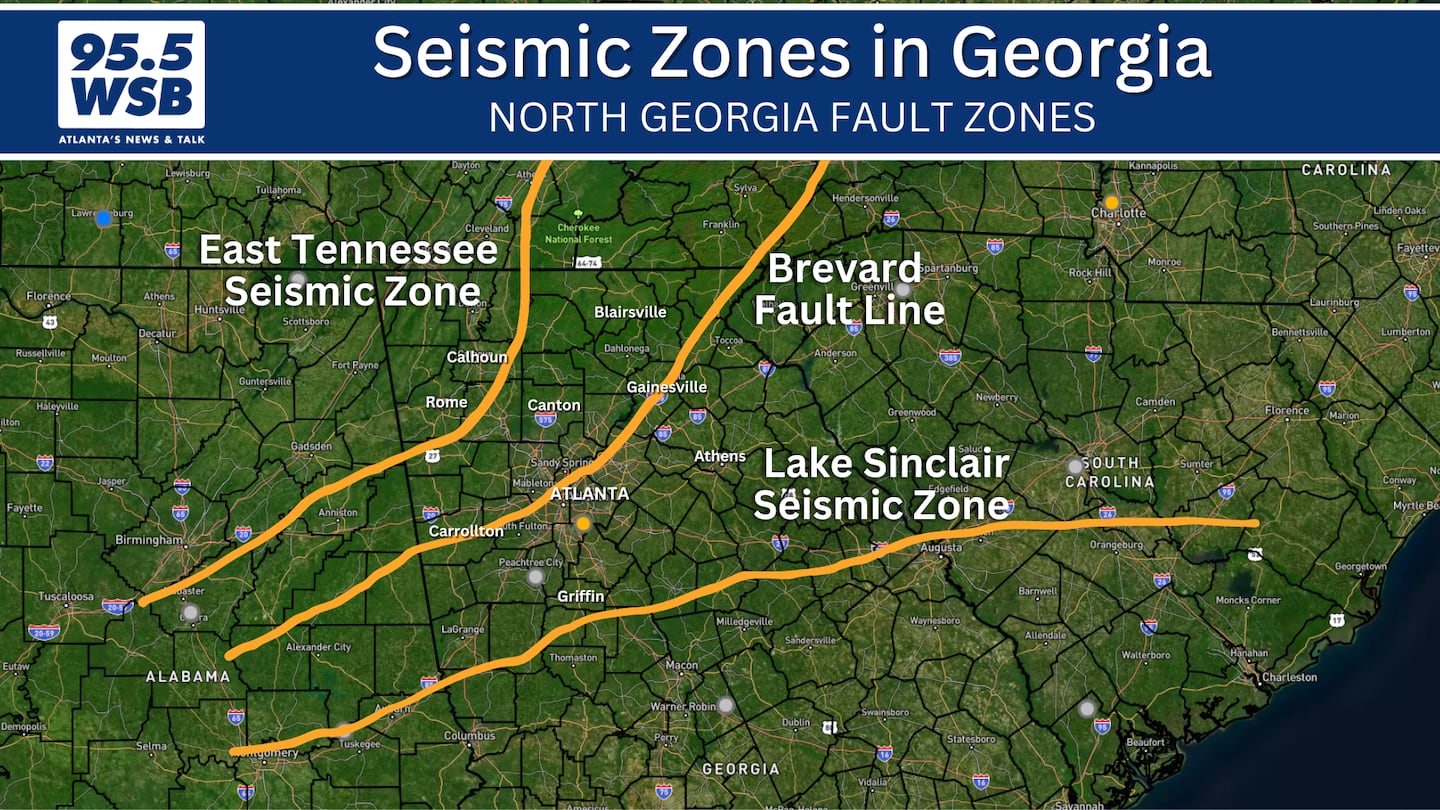In June 2024, a number of earthquakes shook the northeast corner of Metro Atlanta, including the Buford and Lake Lanier region of Gwinnett and Hall counties.
I sat down with Dr. Zhigang Peng, Professor of Geosciences at Georgia Tech, to learn more about their scientific studies throughout Gwinnett and Hall counties since June.
Q: These sensors are located near Lake Lanier. I’ve heard of one hypothesis, that it may along the Brevard Fault Line. I also heard another hypothesis that it could be the weight of the water as it’s moving in and out of the Lake Lanier/Buford Dam area.
Tell me about the hypothesis of the weight of the water -- what are your thoughts on that?
“It turns out a reservoir is well known to cause earthquakes. Now, probably not at Lake Lanier, I have not heard anything related to this reservoir -- but looking at the broader regions, we have quite a few reservoirs in Georgia and the southern regions -- some of them are known to trigger or cause earthquakes.”
Q: Oh -- Which ones?
“The ones near the border between South Carolina and Georgia -- Lake Sinclair, yes.”
“If you are also looking broader -- around the globe. There are many reservoirs, and once the dam has been built, and especially in the first few years -- it’s been known that some of them are capable of triggering earthquakes.”
“There have also been a few case studies indicating that sometimes the lingering effect of the water level changes are capable of triggering earthquakes as well.”
Q: In the summer of 2007 into 2008, we had a severe to extreme drought. Lake Lanier’s levels got significantly low. Over the course of the next nearly 20 years, of course the water levels have come back up.
But they have gone up and down, up and down -- is that fluctuation of the lake level, could that then translate to energy in the earth?
“Absolutely. By the weight of the water itself, it may produce stress perturbations that are potentially high enough to modulate or trigger earthquakes.”
“But you also need something else. There are lakes around the globe, and not all of them set off earthquakes.”
“I think you need a few things -- you need a fault line that is very close to the lake but also close to being ‘tipped over’. In addition, you need the fault line to be oriented in the right direction, so that it can easily slip.”
“For example: We talked about the Brevard Fault. The reason why I don’t think the current events occur on the Brevard Fault is -- first of all, the observed fault is aligned a little bit further south. Secondly, the orientation of the Brevard Fault is aligned in a direction such that it would almost be impossible to make it move.”
“It has to be probably a fault line that is almost near a north-south direction, which is probably what we are suspecting what’s happening there right now.”
“So you have to have all of these things ready in order to potentially have this triggering effect.”
“And I think it’s probably too early to pinpoint and say exactly it is the lake -- but because it is very close to the events, that is why it is the first thing we looked at and why it came up.”
“But I think, obviously, to really understand, we have to do a lot of additional analysis and research to exactly find out what is going on.”
Talk Up a Storm With Me!
Facebook: Christina Edwards WSB
Instagram: ChristinaWSBwx
Twitter: @ChristinaWSBwx
TikTok: @ChristinaEdwards955WSB
©2024 Cox Media Group











